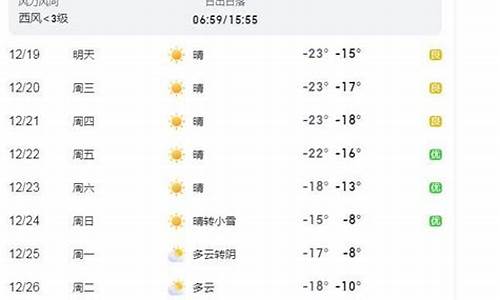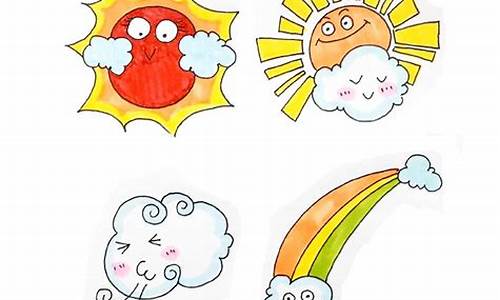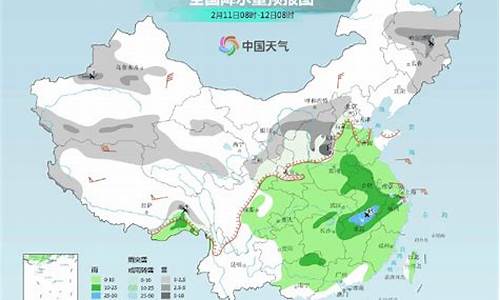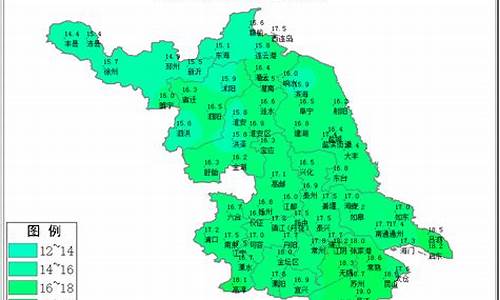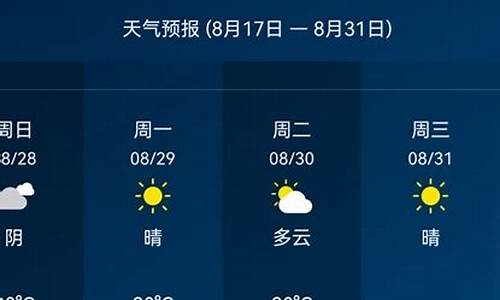英语关于天气的成语_关于天气的成语十个英文
1.英语精典成语句子
2.晴朗的词语晴朗的词语是什么
3.经典英语成语故事及翻译(五篇)
4.在英语中雨下的大为什么叫It is raining cats and dogs
英语精典成语句子

英语精典成语句子集锦
英语精典成语32句
A friend in need is a friend indeed.患难朋友才是真正的朋友。
Actions speak louder than words.事实胜于雄辩
All is not gold that glitters.闪光的不一定都是金子
An idle youth, a needy age.少壮不努力,老大徒伤悲
Bitter pills may he wholesome effects.良药苦口
Do wrong once and you"ll never hear the end of it.一失足成千古恨
Every cloud has a silver lining.守得云开见月明
Every man has his fault.人孰无过
First come, first served.捷足先登
Haste makes waste.欲速则不达
Honesty is the best policy.诚实至上
In fair weather prepare for foul.未雨绸缪
Knowledge is power.知识就是力量
Let bygones be bygone.既往不究
Look before you leap.三思而后行
Man proposes, God disposes.谋事在人,成事在天
Money talks.金钱万能
No gains without pains.吃得苦中苦方为人上人
基础英语轻松学-美国玫瑰:米娅·哈姆(1)
本课您将学到:句型fall in love with…(爱上……),lead, guide和direct(区分近义词)
她因女足而成名,女足因她而精彩,她就是美国玫瑰——米娅·哈姆。今天,我们来了解她的成长历程。
Growing up a military brat(小家伙), Mia fell in love with while her father was serving in Italy. By the age of 14, she was dominating(统治) women’s in Texas and attracting attention(注意,关心) from around the country.
After a scouting(侦察,守候) trip to watch Mia play, Anson Dorrance made Mia the youngest member of the national team at age 15.
Following an All-American high school career(职业), Mia decided to continue to play for Dorrance at University of North Carolina. She led the Lady Tar Heels to NCAA championships(冠军) in all four years she played, while setting conference(联盟) scoring records(纪录).
世博读书笔记
从军人家庭成长起来的小家伙米娅·哈姆,(Growing up a military brat)在她的爸爸还在意大利服役时,(while her father was serving in Italy)她就爱上了足球(Mia fell in love with )。当她14岁时,(By the age of 14)已经统治了德克萨斯的女足界,(she was dominating women’s in Texas)并且吸引着全国的关注。(attracting attention from around the country)
教练Anson Dorrance专程观察Mia踢球以后,(After a scouting trip to watch Mia play)把15的她请进了美国国家队,使她成了国家队中年纪最小的队员。( Anson Dorrance made Mia the youngest member of the national team at age 15)
高中的全美联赛后,(Following an All-American high school career)Mia决定继续跟随Dorrance在北卡罗莱纳大学踢球。(Mia decided to continue to play for Dorrance at University of North Carolina)在那里,米娅四次带领“女爵士队”队夺取NCAA冠军,(She led the Lady Tar Heels to NCAA championships in all four years she played)并且创造了全联盟的进球纪录。(while setting conference scoring records)
基础英语轻松学-美国玫瑰:米娅·哈姆(2)
NCAA:National Collegiate Athletic Association (美国)全国大学生体育协会。
世博句型留言板
今天的句型很实用,让你把“爱”说出来!
Fall in love with…
我们都知道一见钟情可以说成是love at first sight,同样的意思如果用这个句型来表达,就可以说:
As soon as we met, we fell in love with each other.
我们刚一见面,就爱上对方了。
爱情就是这么奇妙,难怪俗语说Love is blind.(爱情是盲目的; 情人眼里出西施。)
其实,对某项事业或某件东西的喜爱程度很深,也可以说fall in love with that thing, Mia爱上了足球可以说fall in love with ,如果你特别钟情于某首歌,就可以说
I fell in love with this song when I first heard it.
我第一次听这首歌就爱上它了。
世博语法小教室
Led是lead的过去式,意思是to bring or show the way to (person or animal) by going in front。领头;带领;引导,牵引(人或动物)。
Guide和direct是它的近义词,那么它们有什么区别呢?今天我们讨论这个问题。
to lead is to show the way by going first, to guide is to show the way and explain things, and to direct is to explain to someone how to get to a place.
走在前面带路用lead ,边领路边讲解用guide ,向某人解释如何到某一地方去用direct。
看看下面的例子:
He led them down the mountain. 他带领他们下山。(他走在大家前面。)
She guided the tourists round the castle. 她引导旅游者参观了这座城堡。(她走在大家之中,边走边介绍。)
Could you direct me to the station, please? 请问到车站怎么走?(这个人并不行动,只是指点别人怎么做。)
如何猜测句子中生词的意思三
三 外部相关因素
外部相关因素是指篇章(句子或段落)以外的其他知识。有时仅靠分析篇章内在逻辑关系无法猜出词义。这时,就需要运用生活经验和普通常识确定词义。
例如: Husband:it‘s really cold out tonight. Wife: Sure it is. My hands are practically numb. How about lighting the furnace?
根据生活经验,天气寒冷时,手肯定是“冻僵的,冻得麻木的”。
The snake slithered through the grass.
根据有关蛇的生活习性的知识,我们可以推断出slither词义为“爬行”。
在猜测词义过程中,除了使用上面提到的一些技巧,我们还可以依靠构词方面的知识, 从生词本身猜测词义。
1. 根据前缀猜测词义
例如:He fell into a ditch and lay there, semiconscious, for a few minutes. 根据词根conscious(清醒的,有意识的),结合前缀semi(半,部分的,不完全的`),我们便可猜出semiconscious词义“半清醒的,半昏迷的”。I‘m illiterate about such things. 词根literate 意为“有文化修养的,通晓的”,前缀il表示否定,因此illiterate指 “一窍不通,不知道的”。
2. 根据后缀猜测词义
例如:Insecticide is lied where it is needed. 后缀cide表示“杀...者,杀灭剂”,结合大家熟悉的词根insect(昆虫),不难猜出 insecticide意为“杀虫剂”。Then the vapor may change into droplets. 后缀let表示“小的”,词根drop指“滴,滴状物”。将两个意思结合起来,便可推断出droplet词义“小滴,微滴”。
3.根据复合词的各部分猜测词义
例如: Growing economic problems were highlighted by a slowdown in oil output. Hightlight或许是一个生词,但是分析该词结构后,就能推测出其含义。它是由 high (高的,强的)和light(光线)两部分组成,合在一起便是“以强光照射,使突出” 的意思。 Bullfight is very popular in Spain. Bull(公牛)和fight(打,搏斗)结合在一起,指一种在西班牙 颇为流行的体育运 动---斗牛。
综上所述,利用各种已知信息推测、判断词义是一项重要的阅读技巧。在实践中,我们可以灵活运用,综合运用上面提到的几种猜测技巧,排除生词的障碍,顺利理解文章的思想内容,提高阅读速度。
Man sentenced for fake bomb threats
A man who fabricated a terrorist threat against the Oriental Pearl TV Tower was sentenced to eight months in prison yesterday.
The Pudong New Area People's Court yesterday sentenced He Wanrong, 54, to prison for fabricating terroristic information. He had been receiving treatment in a mental health center and earlier had been detained for a false fire alarm and for stealing in a supermarket. On the night of April 11, he called the police hot line 110, saying that three men were placing bombs at the foot of the TV tower overlooking the Bund. More than 30 policemen hurried to the spot but found nothing. He was arrested the next morning.
基础英语轻松学-艺术之都——佛罗伦萨(2)
佛罗伦萨提供了世人许多绝佳的艺术宝藏,它们有些矗立在花园和广场上,有些则陈列在华丽的宫墙上,而有些宝藏就是那些宫殿本身。对艺术爱好者而言,佛罗伦萨确实是天堂。
世博读书笔记
1.Treasure可以做名词和及物动词,主要有一下用法。
(1)做不可数名词,表示“金银财宝,财富”,如:
It is said that the pirates buried their treasure on this island.
据说海盗把他们的金银财宝埋藏在这个岛上。
(2)做可数名词,意思是“贵重物品”,如:
the art treasures of Louvre
卢浮宫的艺术珍品
(3)做动词,意思是“珍爱,珍视”,如:
We treasure our friendship.
我们珍惜我们之间的友谊。
2.Palace和paradise
palace有“皇宫、宫殿”的意思,如:
The Queen of England lives in Buckingham Palace.
英国女王住在白金汉宫。
Paradise指的是天上的宫殿,也就是“天堂”或“伊甸园”(通常大写),如:
For what were Adam and Eve expelled from Paradise?
亚当和夏娃是因为什么被逐出伊甸园的?
当然,那些能让人非常快乐的地方,也就是“乐园”,也叫paradise,如:
Hong Kong is a shopper‘s paradise.
香港是购物者的天堂。
世博句型留言板
an example of…
榜样,典范
This is an example of how to obey the rule.
这是个遵守纪律的好榜样。
It is a classic example of colonial architecture.
它是殖民地建筑的一个典范。
今天的节目就到这里,请大家掌握以下知识点:
1.treasure的用法,
2.palace和paradise,
3.an example of句型。
;晴朗的词语晴朗的词语是什么
晴朗的词语有:风清月朗,朗若列眉,晴天霹雳。
晴朗的词语有:风清月朗,朗若列眉,晴云秋月。2:注音是、ㄑ一ㄥ_ㄌㄤˇ。3:词性是、动词。4:结构是、晴(左右结构)朗(左右结构)。5:拼音是、qínglǎng。
晴朗的具体解释是什么呢,我们通过以下几个方面为您介绍:
一、词语解释点此查看详细内容
晴朗qínglǎng。(1)阳光充足,没有云雾。
二、引证解释
⒈天气清明。引晋葛洪《抱朴子·广譬》:“故翠盖不设於晴朗,朱轮不施於涉川。”唐吴筠《秋日望倚帝山》诗:“秋天已晴朗,晚日更澄_。”清许秋_《闻见异辞·朱道人试法》:“一夕张天师_至太湖,天气晴朗,倏起罡风,船随波上下,颠泊异常。”杨朔《泰山极顶》:“等到明儿早晨,山头上的云雾果然消散,只是天空阴沉沉的,谁知道会不会忽然间晴朗起来呢?”
三、国语词典
天气清朗无云,阳光普照没有云雾。词语翻译英语sunnyandcloudless德语heiter(Adj)_,wolkenlos(Adj)_法语serein,beau
四、网络解释
晴朗(汉语词语)晴朗,汉语词语。拼音:qínglǎng释义:多用于形容天气清明,太阳高照的样子。与“阴雨”相对。
关于晴朗的近义词
清朗明亮明朗晴和光明晴好
关于晴朗的反义词
阴暗阴沉阴霾阴晦
关于晴朗的诗词
《州民自言巴土冬湿,且多阴晦,今兹晴朗,苦》《天目西麓访晴朗上人于潜净业兰若》
关于晴朗的诗句
在那晴朗的天气许下个同样晴朗的次晨印记不要因为也许会改变就不肯说那句美丽的誓言不要因为也许会分离就不敢求一次倾心的相遇总有一些什么会留下来的吧留下来作一件不灭的印记好让好让那些不相识的人也能知道我曾经怎样深深地爱过你十字路口如果我真的爱过你我就不会忘记当然我还是得不动声色地走下去说这天气真好风又轻柔还能在斜阳里疲倦地微笑说人生真平凡也没有什么波折和忧愁可是如果我真的爱过你我就不会忘记就是在这个十字路口年轻的你我曾挥手从此分离青青的衣裾我是一条清澈的河流绕过你伫立的沙洲在那个晴朗的夏日有着许多白云的午后你青青的衣裾在风里飘摇倒映在我心中又象一条温柔的水草带着甜蜜的痛楚我频频回顾我将流过不再重回此生将无法与你再相会我知道冬必将来临芦花也会凋尽两岸的悲欢将如云烟只留下群星在遥远的天边在冰封之前我将流入大海而在幽暗的孤寂的海底我会将你想起还有你那还有你那青青的衣裾给青春并不是我愿意这样老去的只是白天黑夜不断地催促将你从我身边夺去到连我伸手也再无法构及的距离悲剧的虚与实其实并不是真的老去若真的老去了此刻再相见时我心中如何还能有轰然的狂喜因此你迟疑着回首时也不是真的忘记若真的忘记了月光下你眼里那能有柔情如许可是又好像并不是真的在意若真的曾经那样思念过又如何能云淡风轻地握手寒喧然后含笑道别静静地目送你再次再次的离我而去山百合与人无争静静地开放一朵芬芳的山百合静静地开放在我的心里没有人知道它的存在它的洁白只有我的流浪者在孤独的路途上时时微笑地想起它来艺术家你已用泪洗净我的笔好让我在今夜画出满池的烟雨而在心中那个芬芳的角落你为我雕出一朵永不凋谢的荷浮生若梦我爱何者是实何者是空何去何从永远的流浪者你尽管说吧说你爱我或者不爱你尽管去选择那些难懂的字句把它们反反复复地排列开来你尽管说吧列蒂齐亚你的心情我都会明白你尽管变吧变得快乐或者冷漠你尽管去试戴所有的复杂的面具走一些曲折的路你尽管去做吧列蒂齐亚你的心情我都会明白人世间尽管有变迁友朋里尽管有难测的胸怀我只知道列蒂齐亚你是我最初和最后的爱在迢遥的星空上我是你的我是你的永远的流浪者用漂泊的一生安静地守护在你的幸福和你温柔的心情之外可是列蒂齐亚漂流在恒星的走廊上想你却无法传递流浪者的心情啊列蒂齐亚你可明白
关于晴朗的单词
fineclearfairsunnyclearness
关于晴朗的成语
书声朗朗朗朗乾坤目似朗星晴天霹雳风清月朗
关于晴朗的造句
1、在这片晴朗的天空下,我们吟咏歌唱。
2、今天的天气很晴朗!我想出去放风筝。
3、给天空画上信任的模样,就晴朗了,给大海画上信任的模样,就平静了,给空气画上信任的模样,就温暖了,给快乐画上信任的模样,就幸福了,明日六一。
4、这是一个美丽的夜晚,晴朗的夜空闪耀着北方的繁星。
5、节日的焰火绽放在晴朗的夜空,祝你的欢乐像礼花般灿烂奔放,祝你的前程像般坦荡辉煌,祝你的幸福像宇宙般永恒宽广。
点此查看更多关于晴朗的详细信息
经典英语成语故事及翻译(五篇)
#能力训练# 导语成语在古代汉语与现代汉语的传承上占有重要的地位,它是汉语词汇系统中重要而又极富特色的组成部分。下面是 无 分享的经典英语成语故事及翻译经典英语成语故事及翻译(五篇)。欢迎阅读参考!
1.经典英语成语故事及翻译
卧薪尝胆
During the Spring and Autumn period (770-476BC), the State of Wu launched an attack against the State of Yue. The King of Wu was seriously wounded and soon died. His son Fu Chai became the new King. Fu was determined to get revenge. He drilled his army rigidly until it was a perfect fighting force. Three years later, he led his army against the State of Yue and caught its king Gou Jian. Fu took him to the State of Wu.
春秋时期,吴国和越国之间进行了一场战争,吴王不幸受了重伤,不久就死了。他的儿子夫差作了吴国的新国王,他发誓要替父亲报仇。于是,他严格的操练他的士兵,把他们训练成了一支非常厉害的军队。三年以后,他对越国发动了战争,抓住了越王勾践,把他带回了吴国。
In order to enge his father's death, Fu let him live in a shabby stone house by his father's tomb and ordered him to raise horses for him. Gou pretended to be loyal to Fu but he never forgot his humiliation. Many years later, he was set free. Gou secretly accumulated a military force after he went back to his own state. In order to make himself tougher he slept on firewood and ate a gall-bladder before hing dinner and going to bed every night. At the same time he administered his state carefully, developing agriculture and educating the people. After a few years, his country became strong. Then Gou seized a forable opportunity to wipe out the State of Wu.
为了复仇,夫差让勾践住在他父亲墓旁的破石屋里墓、喂马。勾践表面上服从,心里面却想着复仇。几年以后,勾践被放回越国。他立刻开始秘密聚集一支军队。为了提醒自己不要忘了报仇,他睡在柴上,还每天在吃饭睡觉前尝一尝苦胆。同时,他专心治理国家,大力发展农业,加强民众教育。几年后,越国又变得强大起来,然后,勾践抓住一个适当的机会消灭了吴国。
Later, people use it to describe one who endures self-imposed hardships to strengthen one's resolve to realize one's ambition.
后来,人们用它来形容人刻苦自励以达到自己定下的目标。
2.经典英语成语故事及翻译
望梅止渴
Quenching Thirst by Watching Plums
One summer, Cao Cao was leading his troops in a punitive expedition against Zhang Xiu. It was extraordinarily hot. The burning sun was like a fire, and the sky was cloudless. The soldiers were walking on the winding mountain paths. The dense forest and the hot rocks exposed to the sun on both sides of the paths made the soldiers feel suffocated. By noontime the soldiers' clothes were wet through with sweat, and the marching speed slowed down. Some solders of weak physique even fainted on the roadside.
Seeing that the marching speed was slower and slower, Cao Cao was very worried because he feared that he might bungle the chance of winning the battle. But how could they quicken their speed? Cao Cao at once callde the guide and asked him on the quiet whether there was a source of water nearby. The guide shook his head, saying that the spring water was on the other side of the mountain, which was very far to he to make a detour to reach. Cao Cao realized that time didn't permit them to make such a detour. After thinking for a moment, he said to the guide, "Keep quiet. I'll find a way out." He knew that it would be to no ail to order his troops to quicken the steps. He had a brain we and found a good solution. He spurred his horse and came to the head of the column. Pointing his horsewhip to the front, Cao Cao said, "Soldiers, I know there is a big forest of plums ahead. The plums there are both big and delicious. let's hurry along, and we will reach the forest of plums after bypassing this hill." When the solders heard this, they immediately slobbered. Picturing in their minds the sweet and sour flour of the plums, the soldiers felt as if they were actually eating the plums, the soldiers felt as if they were actually eating the plums themselves. The morale greatly boosted, the soldiers quickened their steps a great deal automatically.
This story comes from "The Fake Tangery" in Anecdotes of This World by Liu Yiqing of the Southern Dynasties period (420-589). From this story, people he derived the set phrase "quenching thirst by watching plums" to refer to trying to comfort oneself of others by idle dreams.
有一年夏天,曹操率领部队去讨伐张绣,天气热得出奇,骄阳似火,天上一丝云彩也没有,部队在弯弯曲曲的山道上行走,两边密密的树木和被阳光晒得滚烫的山石,让人透不过气来。到了中午时分,士兵的衣服都湿透了,行军的速度也慢下来,有几个体弱的士兵竟晕倒在路边。
曹操看行军的速度越来越慢,担心贻误战机,心里很是着急。可是,眼下几万人马连水都喝不上,又怎么能加快速度呢?他立刻叫来向导,悄悄问他:“这附近可有水源?”向导摇摇头说:“泉水在山谷的那一边,要绕道过去还有很远的路程。”曹操想了一下说,“不行,时间来不及。”他看了看前边的树林,沉思了一会儿,对向导说:“你什么也别说,我来想办法。”他知道此刻即使下命令要求部队加快速度也无济于事。脑筋一转,办法来了,他一夹马肚子,快速赶到队伍前面,用马鞭指着前方说:“士兵们,我知道前面有一大片梅林,那里的梅子又大又好吃,我们快点赶路,绕过这个山丘就到梅林了!”士兵们一听,仿佛已经吃到嘴里,精神大振,步伐不由得加快了许多。
故事出自《世说新语?谲》。成语“望梅止渴”,比喻用空想安慰自己或他人。
3.经典英语成语故事及翻译
一鸣惊人
In the Warring States Period, Duke Wei of Qi neglected state affairs, for the first three years of his reign, giving himself over to dissipation. One of his ministers, Chun Yukun who had a good sense of humour, said to him: 'There is a big bird which has neither taken wing nor sung for three years.' The duke answered, 'Once that bird starts to fly and sing, it will astonish the world.' The duke thereupon devoted himself to his duties and built his state up into a powerful one.
战国时代,齐威王即位后做了三年国君,只顾享乐,不理政事。有个善于说笑话的人叫淳于髡,一天对齐威王说:“城里有一只大鸟,三年不飞也不叫,你知道这是什么道理?”齐威王说:“这鸟不飞则罢,一飞就冲天;不鸣则罢,一鸣就惊人。”在淳于髡的激发下,齐威王开始治理国家,取得很大成绩,齐国的声威一直保持了几十年。
4.经典英语成语故事及翻译
精卫填海
Once upon a time, the youngest daughter of Emperor Yan, legendary ruler of primitive China, went boating on the Eastern Sea. While she was enjoying herself, a strong wind rose on the sea and her boat capsized. Just before she was buried by the surging wes, her spirit turned into a beautiful bird. As it flew over the roaring sea, it cried sadly in the sound "jinwei, jingwei". That was why people called it "Jingwei".
The bird lived on a mountain near the sea. It hated the sea so much that it decided to fill it up. Every day, it flew to and fro between the mountain and the sea, carrying in a twig or a pebble from the mountain and dropping it into the sea.
One day, the roaring sea said to Jingwei, "Poor little bird, stop doing that meaningless thing! You'll never fill me up." Jingwei replied, "I'll fill you up no dou! I will, even if it'll take me thousands of years! I'll fight on until doomsday!"
The bre little bird kept carrying twigs and pebbles from the mountain to the Eastern Sea without taking a rest.
From this fable comes the idiom "The bird Jingwei trying to fill the sea". We use it to describe people who are firm and indomitable and will not stop until they reach their goal.
从前,炎帝(传说中中国原始社会的统治者)的小女儿在东海上划船。正当她划得高兴时,海面上突然升起一阵大风,把她的小船弄翻了。就在她要被汹涌的波浪吞 没时,她的灵魂变成了一只美丽的小鸟。它飞过那咆哮的海面,伤心的叫着"精卫,精卫"的声音。所以人们就叫她"精卫"。
精卫鸟住在靠海的一座山上。它非常恨大海,所以决心要把它填平。它每天来回于山海之间,把从山上衔来的小树枝和小石子扔在大海里。
一天,咆哮的大海对精卫说:"可怜的小鸟,停止你那无谓的举动吧!你是永远都填不平我的。" 精卫回答说:"我当然会把你填平的!即使这需要千千万万年的时间,我也一定会斗争到底,直到你的末日来临!"
这只勇敢的小鸟继续从山上衔来小树枝和小石子,扔到东海中,从未有片刻休息。
"精卫填海"这个成语就是由这个传说而来的,形容那些坚定不移,不屈不挠,不到目的决不罢休的人。
5.经典英语成语故事及翻译
fail the exam
名落孙山
In the Song Dynasty (宋朝) there was a joker called Sun Shan(孙山).
宋朝有一个很幽默的人,他叫孙山。
One year he went to take the imperialexamination, and came bottomof the listof successfulcandidates.
有一年他去参加考试,公布名单时他是最后一名。
Back in his hometown, one of his neighbor asked him whetherthe neighbor's son had also passed.
回到家,他的邻居向他打听自己的儿子考得怎么样。
Sun Shan said, with a smile:"Sun Shan was the last on the list. Your son came after Sun Shan."
孙山笑着对邻居说:“孙山考了最后一名,你儿子的名字还在孙山的后面呢。”
The peopleused this idiom to indicatefailing in an examination or competition.
人们用“名落孙山”来比喻考试没有考上或者选拔没有被录取。
在英语中雨下的大为什么叫It is raining cats and dogs
“To rain cats and dogs”最早出现在理查德-布罗姆1652年创作的剧本《都市智慧》中:“It shall rain dogs and polecats.” Polecats 是一种类似于雪貂的猫,但是这个词后来在乔纳森-斯威夫特的笔下变成了Cats.1738年,斯威夫特在《礼仪对话》一书中所使用的短语就是如今我们所熟悉的这种形式:“I know Sir John will go,though he was sure it would cats and dogs.”
《词汇短语起源故事百科全书》(Facts on File Encyclopedia of Word and Phrase Origins) 中收录了对其起源的一种解释.书中说“17世纪的英格兰在下大雨的时候,一些城市的街道就会水流成河,而且这些污水中还会飘浮着大量的死猫死狗.”(During hey rains in 17th century England,some city streets became raging rivers of filth carrying many cats and dogs.)
布鲁尔在其所著的《成语寓言大辞典》(Dictionary of Phrase and Fable)中说,这个短语起源于北欧:“在挪威的神话中,猫被认为可以影响天气.驾着风暴而来的女巫据说就是化身为猫的.” 而狗和狼则是风暴神欧丁的随从,其中狗是“风的象征”("In Norse mythology,the cat is supposed to he great influence on the weather.Witches that rode on storms were said to assume the form of cats." Dogs and wolves were attendants to Odin,the god of storms,and the dog "is a signal of wind.").
关于这个短语起源的另一种说法是说它来源于一个古老的法语词“catdoupe”,这个词的意思是“waterfall or cataract”.而法语中“catdoupe”的发音和“cats and dogs”有些相像,所以就有了 “to rain cats and dogs”.
最后,单独的“cats and dogs”这个短语有自己的用法,意思是“ 价值低的股票,不值钱的、卖不掉的商品”(low priced,highly speculative stock).这种用法1879年开始出现,年在《纽约邮报》中就曾出现过这样的用法.
声明:本站所有文章资源内容,如无特殊说明或标注,均为采集网络资源。如若本站内容侵犯了原著者的合法权益,可联系本站删除。

